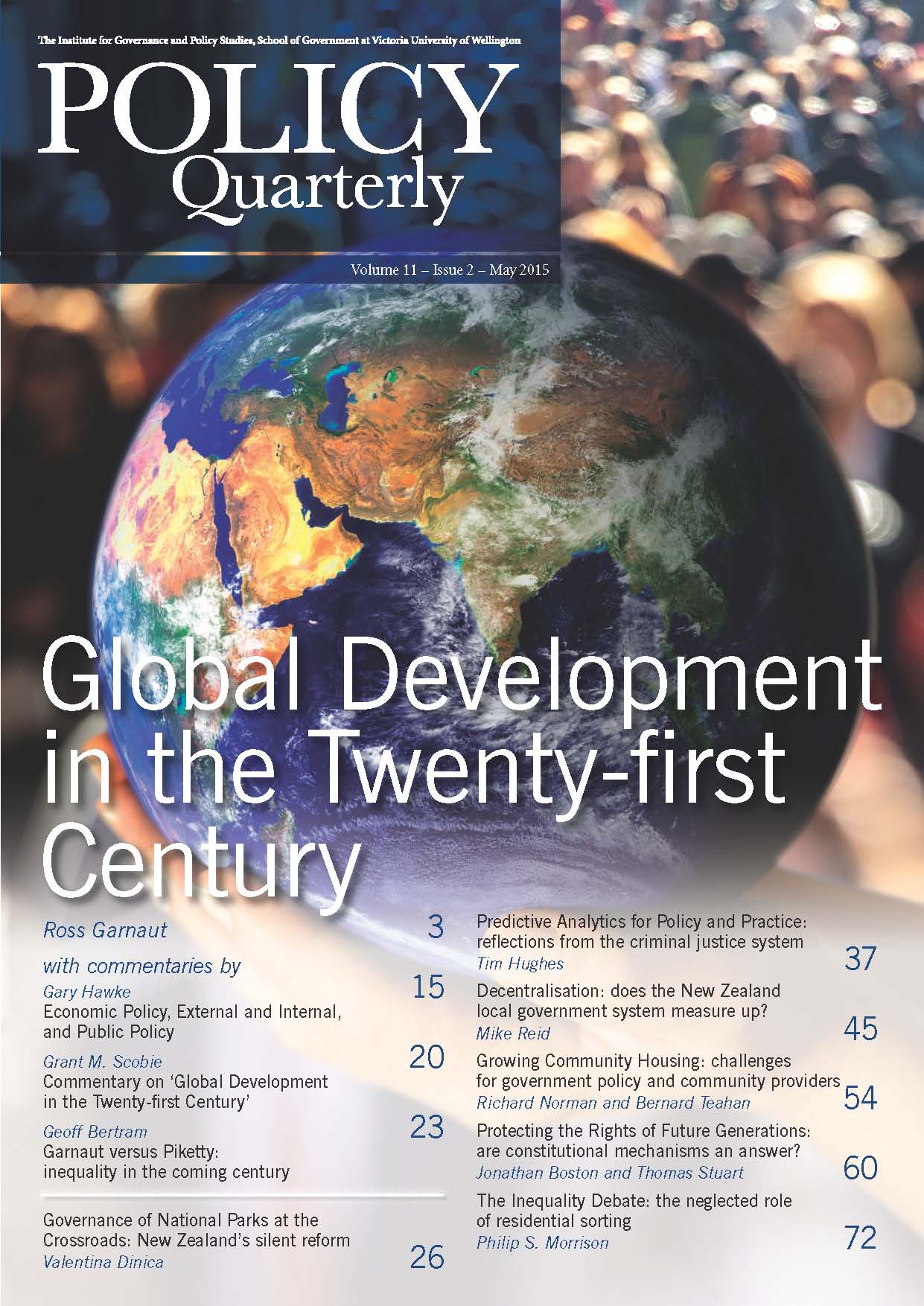Decentralisation: does the New Zealand local government system measure up
DOI:
https://doi.org/10.26686/pq.v11i2.4539Keywords:
efficient services, World Bank, decentralised models, elected sub-national government, unresponsive bureaucracies, United Cities and Local Governments (UCLG), council committees, Fiscal decentralisationAbstract
Decentralisation continues to be well received as a strategy for improving the governance of countries and delivering more responsive and efficient services. Cheerleaders include multilateral agencies like the World Bank and developed countries, like England, which seek to reverse years of centralisation. Evaluating the effectiveness of decentralised models raises the question of what it means to be ‘decentralised’, and how decentralisation itself is measured. This article describes the World Bank’s diagnostic framework for assessing decentralisation and applies the framework to the New Zealand local government system.
Downloads
Downloads
Published
Issue
Section
License
Permission: In the interest of promoting debate and wider dissemination, the IGPS encourages use of all or part of the articles appearing in PQ, where there is no element of commercial gain. Appropriate acknowledgement of both author and source should be made in all cases. Please direct requests for permission to reprint articles from this publication to Policy-Quarterly@vuw.ac.nz.



